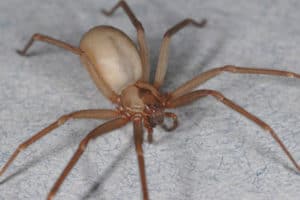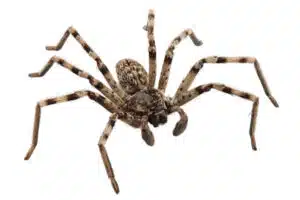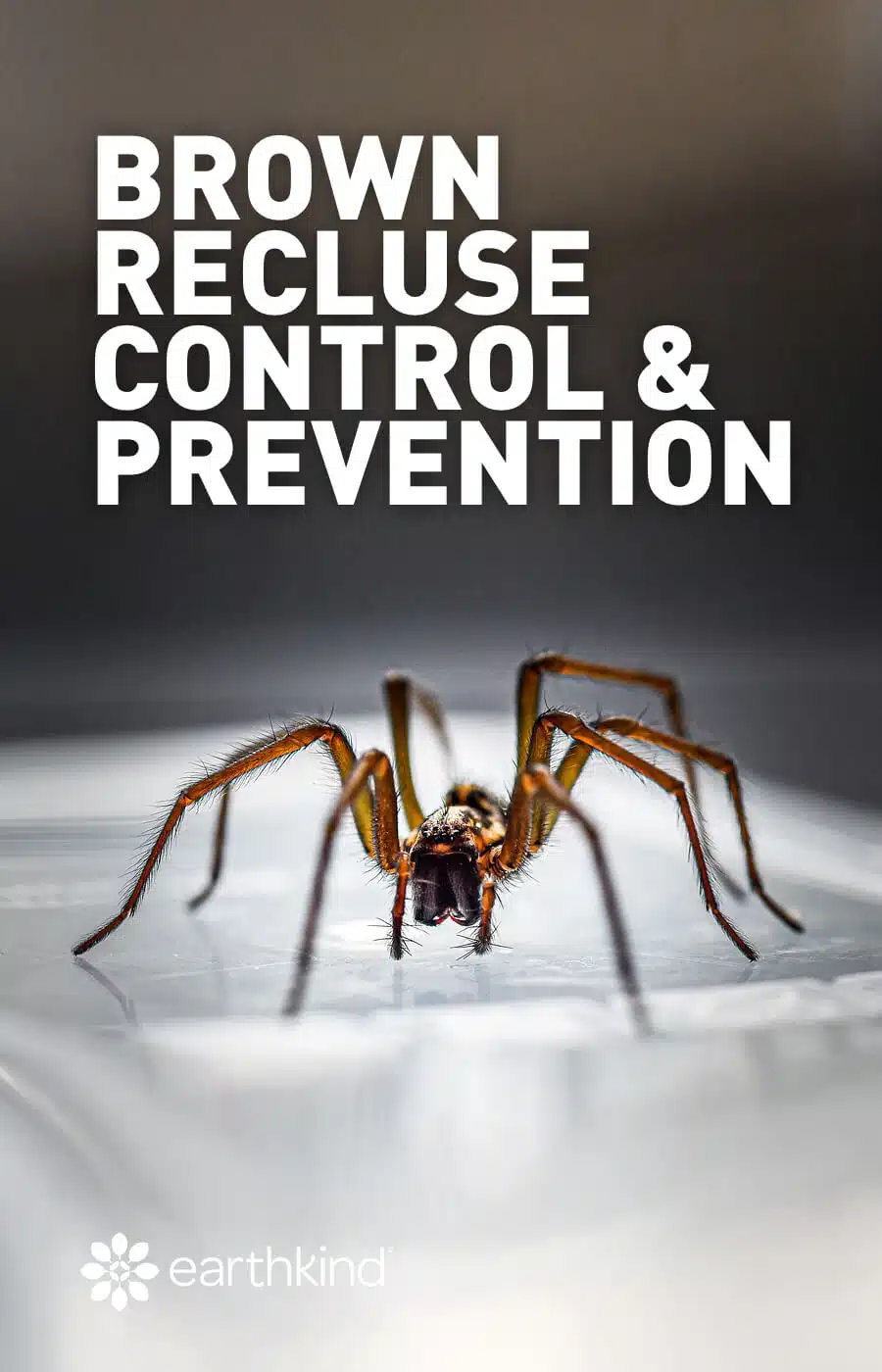Brown Recluse Facts and Prevention
By: EarthKind
What would you do if you came across poisonous spiders in your home? It sounds like a horror movie plot, but it’s a possibility that people need to be aware of and work to prevent it in their own house.
Brown recluse spiders, also known as Loxosceles Reclusa, are a common concern for homeowners, especially in the Midwest and south-central areas of the United States. Their venomous bite can lead to necrotic skin lesions and anyone who has been bitten should seek medical attention. This makes it essential for homeowners to understand and implement effective spider control methods to help avoid this situation.
Although brown recluses have a venomous bite, they aren’t aggressive by nature and play an important role in the ecosystem. All the same, they probably don’t make good roommates!
What Does a Brown Recluse Look Like?
A typical brown recluse has the following characteristics:
- Also known as violin spiders or fiddleback spiders, they have a violin-shaped marking on their back.
- They are light tan to dark brown in color.
- They are roughly the size of a quarter and their body length maxes out at 3/8″.
- Their legs have consistent color and fine hairs.
- Legs do not have spines.
- They have six (6) eyes, as compared to most spiders which have eight (8) eyes.
Brown recluses prefer to scavenge dead or dying insects rather than hunt live prey. As the name would suggest, they are generally shy, reclusive spiders, but do tend to live in groups or clusters. Where there is one, there are many!
Brown Recluse vs. Wolf Spider
 |
 |
| Brown Recluse Spider | Wolf Spider |
It’s easy to confuse the brown recluse with wolf spiders. While both have similar coloration, the violin mark and the six-eye arrangement differentiate the brown recluse from the other type of spider.
[subscription-form gfid=”15″ text=”Keep your home pest free with simple, effective solutions. Subscribe and save!” tag=”Spiders”]
Where Do They Live?
Brown recluse spiders are native to the United States, particularly in the Midwest and south-central regions, including states such as Texas, Alabama, Missouri, Oklahoma, and Kansas. While not as densely populated as the Midwest or south-central regions, brown recluses can also be found in parts of the southeastern U.S.
It’s worth noting that while brown recluses have a specific range, they can occasionally be found outside these areas, especially if they hitch a ride in moving boxes or vehicles. However, such occurrences are rare, and the spiders don’t typically establish populations outside their native range.
In addition to the U.S., there are related species of the Loxosceles genus found in other parts of the world, but the brown recluse is specific to North America.
Once they find their way into a home, Brown Recluses prefer dark, secluded areas. Common hiding places where you may find them inside homes and structures include:
- Garages
- Closets
- Woodpiles
- Basements
- Attics
- Crevices
- Storage areas
- Crawl spaces
They also tend to live in groups or clusters, so spotting one might indicate a potential infestation.
Brown Recluse Spider Bite Symptoms
Bites from other spiders that aren’t dangerous may lead to minor skin irritation. If bitten by a Brown Recluse, one might experience:
- A blister at the bite site
- Pain or itching within 2 to 8 hours
- Ulcers or necrotic skin at the bite site
- Fever, chills, and body aches
Can A Bite Kill You?
A brown recluse bite is unlikely to be fatal for a healthy adult. However, the venom can cause significant local tissue damage, leading to a necrotic wound that can take weeks or even months to heal.
In rare cases, especially in children, the elderly, or those with compromised immune systems, the venom can cause systemic reactions that might be more severe. Severe symptoms can include fever, kidney failure, liver damage, gangrene, and coma. Some people might also be allergic to the venom of a recluse, which can be extremely dangerous.
While death from a brown recluse bite is extremely rare, it’s essential to seek medical attention if bitten to prevent complications and ensure proper wound care.
Natural Spider Control and Prevention Methods
Knowing what types of conditions brown recluses and other arachnids prefer will help you make your home uninviting to spiders. Here is advice to make indoor and outdoor areas less spider-friendly around your home:
- Keep the outside perimeter of your home free of tall grass and thick vegetation, especially near the foundation.
- Always check items that have been stored outside, in sheds, or in garages for spiders and egg sacs before bringing them indoors.
- Make sure potential entry points such as doors, windows, and screens are all properly fitted and tightly sealed. Seal cracks with caulk.
- Regularly clean storage areas, remove clutter and avoid leaving clothes and other household items on the floor.
Also, take steps to prevent other common household pests, such as cockroaches, termites, ants, or moths, as these can supply a food source for spiders. Preventing spiders in the home is easier than getting rid of them because spider poison is only effective if it is applied directly to the spider. Unlike other insects, spiders will not be affected by simply walking across poison that has been previously applied.
After you have made sure your home is uninviting to spiders, go the extra mile and use a botanical spider repellent like Stay Away® Spiders to prevent future infestations.
MESSAGE FROM EarthKind®:
Treatment of a poisonous spider infestation like Brown Recluse should be handled by a professional pest control service. They are very difficult to treat. Once your spider problem is under control, our products can help in preventing future infestations.
Our CEO has been bitten twice by a brown recluse spider and fortunately survived. It’s one of the reasons she developed this product to prevent spiders (by repelling their prey) from taking up residence in a home. Please let us know if we can provide a PMP referral for you in your area.







